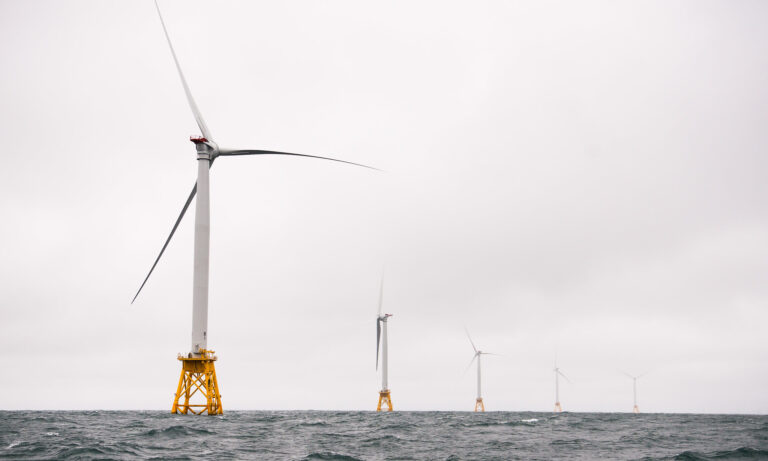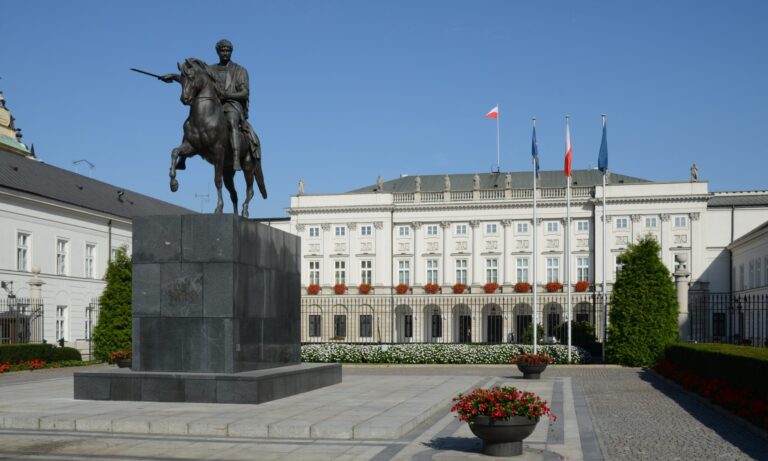
In recent years, Poland has been seen by some observers as a willing decoy for China as it seeks to wedge itself into Europe, and the arrest in January of a Huawei executive seemed like a change of heart. But were things ever so simple?
Poland’s relations with China came under the international spotlight in January this year following the arrest on spying allegations of a regional director of the Chinese telecommunications giant Huawei and a former agent of the Polish Internal Security Agency (ABW), a case that for many re-confirmed fears that Central European countries like Poland have in recent years grown too close to China, serving as “Trojan Horses” aiding Chinese penetration into Europe and undermining European integration.
In the wake of the arrests, Joachim Brudziński, Poland’s minister for internal affairs, urged the European Union and NATO to formulate a policy on the exclusion of Huawei from their markets on security grounds. Correspondingly, the Huawei case and the Polish response were glimpsed by many through the frame of a US-China contest over global technology dominance, with Central Europe as the battleground. “Clearly, the United States is desperate to check China’s rapid economic and technological ascendancy and is trying to use its allies and partners in Europe to curb Huawei,” Wang Yiwei, director of the Center for EU Studies at Renmin University of China, told the South China Morning Post.
Chinese state media, meanwhile, responded with threats and bullying to this apparent about-face in one of Huawei’s largest European markets. The Global Times, a nationalist tabloid published by the official People’s Daily, said that Poland, which it recently praised as one of China’s best partners in the CEE region, had become “an accomplice of the US,” and that it “must pay for the offense.”
The sense of a U.S.-led turn against China was compounded in February during visits to Warsaw by US Vice President Mike Pence and Secretary of State Mike Pompeo. Pence said during a February 13 joint press statement with Polish President Andrzej Duda that the United States “welcomes Poland’s partnership as we work to protect the telecommunications sector from China.” One senior official in the Trump administration suggested ahead of the Pence-Pompeo trip that the U.S. failure to engage in Central Europe in recent years had created a vacuum that China had sought to exploit.
Missing from these oversimplified accounts, which cast Poland as a minor partner in a geopolitical tug-of-war, is a real assessment of the country’s own experience of engagement with China — a reckoning of its frustrated desires, and its lingering hopes. In fact, this was not a sudden about-face on Poland’s part. Poland’s disillusionment with China has been a long time in the making.
From Marginal to Miracle
Warsaw’s cooling enthusiasm for Beijing has gone largely unnoticed among Western observers for a number of reasons. First of all, Poland’s involvement in Chinese initiatives in the region, such as the Belt and Road Initiative (BRI) or the 16+1 platform, has been perceived by many Western observers to be a conscious strategy of disengagement from cooperation with Brussels and Berlin, in much the same way that Hungary has turned away from the EU. This perception has perhaps been encouraged by the strain of Euro-scepticism evident in Poland’s domestic politics.
But Poland in fact never endeavored to create a strategic policy like that of Hungary’s “Opening to the East.” Warsaw’s attempts to foster political and economic ties with China have instead been fragmented and incoherent, driven by a poor understanding of China and its implications.
Poland has never reached a mature and comprehensive strategy for dealing with Beijing. Ever since Poland’s democratic transformation thirty years ago, successive Polish governments have made start-and-stop attempts to develop relations with China in the absence of any clear consensus about how and to what extent this should be done. Nor have Polish politicians ever clearly articulated the reasons why it should be done.
If this was ever a love affair, Poland stumbled into it, like many countries, with blind enthusiasm — not a strategic reorientation toward China.
The notion of China as market and investor of promise that demanded engagement arrived a bit late in Poland. This was at least partly a matter of priorities. Poland’s relative economic backwardness at the start of the 1990s meant that it had to look inward and prioritize a game of catch-up over the pursuit of new directions for development.
Poland was also proud of its heritage as a new democracy. It had ended the decade of the 1980s by shaking off the shackles of communism. On June 4, 1989, just hours after PLA troops in Beijing marched on Tiananmen Square to crush the democracy movement, voters in Poland had handed a huge victory to the Solidarity trade union, led by Lech Wałęsa, during the country’s first semi-free elections in more than eight decades. Poland’s story could hardly be more different than China’s — and, for many, this was a source of self-confidence.
Throughout the 1990s and into the new century, China remained on the margins of Polish public debate, and it scarcely registered on the radar of domestic politics. When China did emerge, it was often in the context of public criticism of its human rights abuses. Poland regarded itself as a pioneer in the peaceful transformation from communism to democracy, and some political figures felt it was their obligation to point China in the right direction, an attitude particularly prevalent in post-Solidarity circles. One of the most vivid examples was the Polish Parliamentary Group for Tibet, formed in 2006, which lobbied for the Tibetan cause and sought to raise awareness of the Chinese government’s policies.
But through the 1990s and into the new century, Poland was focused largely on domestic structural adjustments and on Poland’s accession to Western-led, international and multilateral institutions such as NATO (1999) and of course the European Union (2004). No larger frameworks for cooperation with China were on the agenda. For the most part, China was a non-issue.
The notion in Poland of the “China miracle” as a source of opportunity did not really emerge until after 2008, a year marked by the Beijing Olympics — a hugely symbolic moment for China — and by the global financial crisis. By this time, in fact, China was already entering a period during which the longer-term sustainability of its export-oriented growth model, the oft-cited source of its “miracle,” was subject to greater questioning.
Compared to countries in Western Europe, Poland emerged relatively unscathed from the global financial crisis. With demand sluggish in the EU, however, policymakers in Warsaw soon recognized the need to diversify Poland’s international trade relations. China was suddenly attractive as a potential partner.
The Honeymoon Phase
In December 2011, Poland and China signed a strategic partnership declaration, during a visit by then President Bronisław Komorowski to Beijing, symbolically beginning a new phase in Sino-Polish bilateral relations. In retrospect, this is what we might call the beginning of the honeymoon phase in Poland’s relations with China.
A few months later, in April 2012, Chinese premier Wen Jiabao reciprocated with a visit to Warsaw, his first visit to Poland. During his trip, Wen attended China-Central and Eastern Europe leaders’ meeting, which initiated the 16+1 platform for cooperation. In a rare televised speech broadcast in Polish media, the Chinese premier praised the state of Sino-Polish relations and announced new mechanisms for cooperation across a range of areas including trade, investment and culture. Among other promises, he pledged to establish a 10 billion dollar line of credit to support Chinese investment in the region.
This honeymoon phase in Sino-Polish relations began initially under the government of the liberal and pro-European Civic Platform, or Platforma Obywatelska (PO). When a political reshuffle happened in 2015 with the victory in parliamentary elections of the conservative political party Law and Justice, or Prawo i Sprawiedliwość (PiS), this did not bring any qualitative change in Warsaw’s approach toward Beijing. Given its anti-communist zeal, some speculated that the PiS government might become more sceptical about cooperation with China. Quite to the contrary, the number of bilateral visits under the new administration accelerated, reaching their peak with President Xi Jinping’s June 2016 visit to Poland, during which the two sides upgraded their relations to a comprehensive strategic partnership.
In the meantime, new institutional mechanisms were established in the region. For example, in November 2014, the 16+1 Secretariat for Investment Issues, Poland’s deputy prime minister, Janusz Piechociński, noting at the signing ceremony that “all countries in the region are interested in increasing the inflow of investments from China,” with priority for “those that create new jobs and entail the influx of new technologies.” Or, in 2017, the 16+1 Coordinating Secretariat for Maritime Issues in Warsaw, whose stated aim was to “strengthen cooperation between the sea ports of China and the Central and Eastern Europe countries as well as political and economic cooperation.”
But the activities of these mechanisms have never been widely publicized, and their impact has been marginal when it comes to the public discussion about the role of China in the region.
When China’s Belt and Road Initiative (BRI) was inaugurated in 2013, Poland expressed interest in participating in the project. Other international initiatives led by China, such as the Asian Infrastructure and Investment Back (AIIB), also prompted Polish interest. In the case of the AIIB, Poland became one of its “founder members,” and a Polish national, Radosław Pyffel, was chosen as one of the bank’s alternate directors. Local Polish media quickly picked up on these signs of an apparently deepening relationship, painting a rosy picture of yet another imminent wave of Chinese investment in the region. No one dwelled on the uncomfortable fact that the first wave had yet to actually materialize.
Great Expectations
The media narrative heralded Poland’s role as China’s “doorway to Europe” and as a “natural hub for Sino-European trade” — a place of strategic importance that could only benefit from joining the so-called New Silk Road, which began to take on almost mythical proportions.
“Poland plays a very important role in the New Silk Road,” Pyffel, the AIIB alternate director, told the Polish business Puls Biznesu, “because our territory is the fastest connection from China to Europe, which creates opportunities for the logistics industry.”
Initially, only a handful of public figures in Poland bothered to ask themselves why, and with what conditions, China was actually interested in investing in Poland. Despite the fact that the two countries had no long-standing tradition of close cooperation — barring what one Eastern European official had called, a quarter century earlier, the “big official love” of the Communist era, which by that time had already been lost — expectations for results from Chinese investment in Poland were extremely high.
The problem of the growing trade deficit with China had been known for years, but as hype grew of a new freight train route linking Poland and southern China, a core project under BRI, no one thought to ask either whether this would actually address the trade deficit or otherwise benefit Poland. For quite some time, promises were portrayed in Poland’s mainstream media as benefits already realized. Cooperation with China was naturally good and desirable because, after all, China was the new powerhouse of the global economy.
Some Polish experts have made efforts to problematize the often simplistic narratives about Sino-Polish cooperation that appear in the Polish media, but their arguments have not generally appealed to the wider Polish public. Justyna Szczudlik, a China scholar and head of the Asia-Pacific Program at the Polish Institute for International Affairs (PISM), noted in 2016, three years into the much-vaunted “New Silk Road,” that “[with] China yet to propose beneficial projects and considering the potential risks involved with access to critical infrastructure, the Chinese declarations should be treated carefully and expectations lowered.”
Despite the diplomatic hustle and bustle, and the media hype about the coming wave of Chinese-led development, investments have not materialized, and the trade deficit has continued to grow in China’s favor, rising from 94 billion PLN in 2017 to 102.5 billion PLN in 2018.
At first glance, the honeymoon period described above might appear to mark an effort by Polish policy-makers to develop a coherent strategy towards China. In fact, such a strategy has never existed. As Łukasz Sarek noted over a year ago in an article for the Warsaw Institute, “Our country still lacks a consistently implemented long-term and accurate strategy for the development of foreign policy, including economic policy towards China.”
In the absence of a real strategy, and as many promises have failed to materialize, it is perhaps no surprise that frustrations have accumulated. In another study in late 2017, Justyna Szczudlik, the PISM expert, noted that “China is considered as a difficult partner, which in a very assertive way is trying to export its excess manufacturing capacity and loan and credit schemes.”
What the honeymoon period marks instead is Poland’s failed attempt to leap headlong onto the train of Chinese development. Polish decision-makers never really understood the dynamics of China’s domestic economy, nor did they grasp its changing economic needs in the global arena. In retrospect, then, this was not so much the honeymoon phase of a new relationship as a one-sided fascination, even infatuation — but mostly an un-reciprocated affair.
The Power of Perception
In recent months it has become clear to Polish policy-makers that the US perception of Poland’s growing closeness with China is a problem that has possible negative consequences for the country. This seems to be one of the key reasons why the Polish government is now adjusting its approach toward Beijing.
Concerns over everything from unfair technology transfers, intellectual property theft and strategic investments, to a new alertness to China’s growing political influence and the serious nature of human rights abuses in regions like Xinjiang, have all contributed to sense that China’s ambitions must be restrained. This sense, already awakened in Europe, has been advanced by the United States under the administration of President Donald J. Trump, who pledged on the campaign trail in 2016 to get tougher on China.
The current US administration has regarded the CEE region as an area of strategic competition between Washington and Beijing. Assistant Secretary of State Wess Mitchell, who deals with European and Eurasian affairs, said in October 2018 that “the return of big-power competition is the defining geopolitical fact of our time.” He spoke of the anniversary of the end of communism in Europe, and how “nations across Central Europe, many with ancient traditions of independence, were liberated from the long night of communist tyranny.”
“Captive nations like Poland and Hungary showed the way to freedom, to a future of liberty and free markets,” Mitchell said. Now, he suggested, China was the new geopolitical power threatening freedom and fairness with a long list of abuses including debt-book diplomacy, IP theft, economic espionage, and product dumping. For the first time in history, Mitchell said, “China has become a major player in Central and Eastern Europe.”
The extent of Chinese influence in the region suggested by Mitchell might be an exaggeration. But as we saw from Poland’s enthusiastic embrace of China hype, perceptions can direct policy. Whatever the real nature and extent of Chinese influence in the CEE region, the US perception of that influence has played an important role in the policy-making of decision makers here.
But while Warsaw’s shift of attitude toward Beijing may seem to have coincided with US strategic concerns over technology and security, it would be wrong to suppose that Poland’s attitudes or policies toward China have been driven primarily by US concerns — just as it would be wrong to suppose that Poland has hitherto been driven primarily by Chinese strategic objectives. Poland is neither a Chinese Trojan Horse nor a US dupe, and such simplistic readings do little to inform the real debate in Poland, and in Europe, about how to engage intelligently with China.
Lingering Lessons
While many of the signals this year have pointed toward a change in the Polish stance toward China, and have suggested Poland has grown weary of China’s failure to consummate its promises, the current tensions should also not be misread as a break in ties. China’s engagement with Poland and with the region is not likely to reverse course.
One clear outcome of the engagement with China over the past decade has been a rise in general interest in the country. This is particularly true in the arenas of culture, science and people-to-people exchange. While the general public in Poland still has a rather indistinct impression of China, and knowledge is insufficient, more and more people now find Chinese culture attractive and show a willingness to learn.
On the diplomatic level, bilateral and multilateral cooperation (for example, through the 16+1 platform) will almost certainly continue — though China will have to adjust to Poland’s changing perceptions of the relationship. Part of that change will certainly involve much greater scepticism. Local, often highly critical, regional debates about possible risks originating from cooperation with Chinese firms have been underway for a while now, though oftentimes their impact on the mainstream debate in the media has been limited. More countries across the CEE region, notably the Czech Republic, have become alert to security issues as international tensions have risen over potential security threats related to cooperation with Huawei.
As concerns persist in Europe and beyond over China’s growing sphere of influence, Poland will need to seek the proper balance of security and opportunity.
This article was originally published on Echowall and is republished with permission.
Written by
Alicja Bachulska
a_bachulskaDr. Alicja Bachulska is a Research Fellow at CHOICE and Policy Fellow at the European Council on Foreign Relations where she focuses on Chinese foreign policy and China-EU relations.


